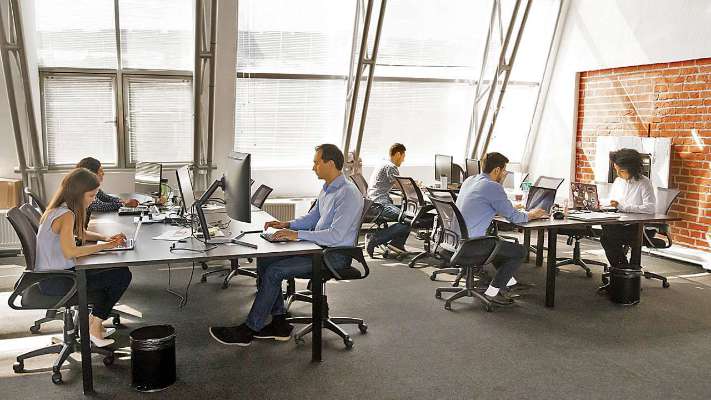 18-09-2019
18-09-2019
How millennials are redefining health coverage benefits at workplace

 Insurance Alertss
Insurance AlertssHow millennials are redefining health coverage benefits at workplace

The global workforce is now an enormously changed landscape. A vital constituent of this makeover is the rise of the millennial employee. Born in the 1980s to the early 2000s, millennials saw the internet revolution and are often called digital natives. They live, breathe, access, evaluate, and assess both private and professional patterns online. They are also exceptionally growth-focused, pliable, hungry for change, and are bold risk-takers.
A recent global well-being study carried out by healthcare giant Cigna Corporation has revealed that about 82% Indians are bogged down by stress on account of work, health and finance-related concerns and one-in-two plan to fund their medical expenses in old age from their savings, followed by insurance. Since millennials began joining the workforce, employers are trying to invoke the comprehensive benefits packages as millennials seek much more than high pay, flexibility or designation. So, what do millennials actually want out of employee benefits? - Long-term financial security and health benefits.
In fact, the millennials' proclivity for long-term planning reflects some of this generation's core behaviour. Millennials are risk-averse when it comes to investing, which is exactly the opposite of what the pro-risk portfolio that investment consultants usually suggest for young adults. It is also a fact that millennials do invest more conventionally than their predecessors and, astonishingly, are more focused on retirement savings.
Given their risk-aversion and aspiration to plan financially, millennial employees put the maximum stress on health insurance benefits. A few decades ago, young adults hardly ever thought much about health care and often saved a few bucks by letting their health insurance lapse. But, today's young adults are adopting a very unusual attitude. Many millennials rate having health insurance as "imperative" and something that they need and that it is worth the money for leading a stress-free life.
The millennials' focus on persistently protecting their health also echoes how special and shielded this generation was in childhood. All through their lives, millennials have consulted with experts like physicians and specialists about their problems more often than the earlier generations and are therefore more familiar with clinics and hospitals. Now, with the rising inflation and cost of hospitalisation, millennials think from the viewpoint that what would a shocking medical bill mean for their finances and their family's finances one or two decades from now. And, this generation does not want to take that chance.
Millennials, in general, are more upbeat about their health and wellness compared to older demographic groups. The workplace plays an important role in the health and well-being of an employee and workplace wellness programs are the major distinguishers in choosing between two potential employers. Managing workplace stress is important for corporations, as they can include health and wellness programs in every employee's bene?ts package.
When companies give a competitive benefits package, they draw top talent, offer current employees an improved quality of life, and develop reciprocally beneficial relationships with workers. Millennials vouch for this. Companies, these days, should think if their healthcare benefits along with other benefits cater to this group. They should try to engage these employees with impactful wellness strategies amplifying increased efficiency and reduced incidence of future chronic conditions. To magnetise this workforce and to keep hold of the best employees both now and in the future, companies must transform the approach to employee benefits.
Millennials love immediacy and convenience. Given that online health services offer convenience, customisation, accessibility and affordability, the positive reaction towards health insurance is not surprising. Undeniably, millennials are planning ahead for the long-term and generally are focused on meeting their life goals "on time". And, there is perhaps no more important employee benefit than healthcare. Millennials definitely think so. They want employers who take their health seriously. And, why not? It is an inherent fact that healthier employees are more self-motivated employees.
For better or worse, operating a successful business means keeping the employees contented. Now that the millennials have taken over the workplace, the benefits landscape needs to revolve around their wants and needs. Progressive employers that get ahead of the curve may have a major lead in employing, retaining and enlivening their young employees in the years to come.
Source: DNA